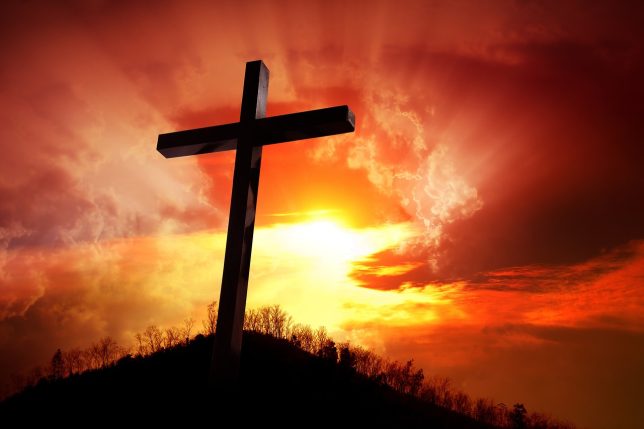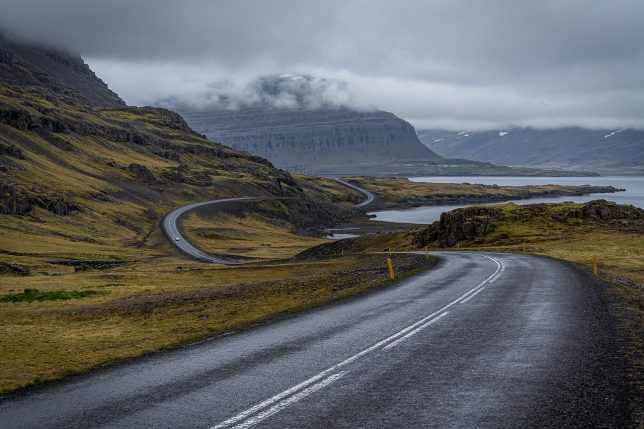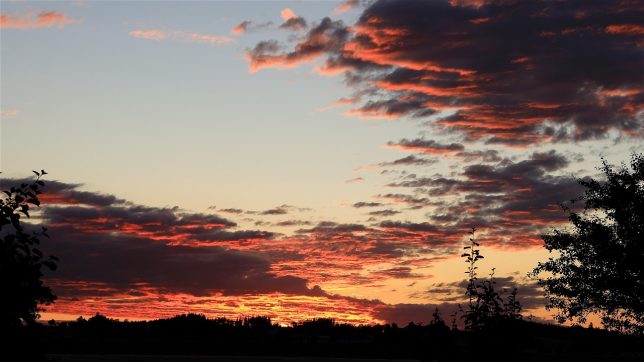Emmanuel: What is your passion?
Deja: Ooh, my passion… I’m passionate about performing. (pause) I feel like that’s where my passion is: on the stage, not just singing or performing a monologue. I want to do the whole play for you, because then I get to fully transform into the character. I get to fully bring this person to life. It’s just that I’m very critical of myself, so when I’m not doing the whole thing, it’s not doing [the story] justice. If I’m just doing a little bit of it. A little bit of it can change your life, but the whole thing? Give me time to transform into the character.
2. What do you mean by “the whole thing”?
D: Like For Colored Girls. It was a whole play. And it was an hour and a half’s worth of just monologues back to back, and that’s the whole thing. You come in to see the show at 8 or the show at 6, versus [when you see part of it] in a talent show, it’s just the performance of a monologue. That’s just a piece. Let me get into character, let me change your life. I just love it.
E: Can you elaborate on what storytelling means for you?
D: I love telling stories because for a lot of people, when they’re telling stories or creating characters, they’re thinking about a past experience or a person they met, or an idea, or a dream.. either way, it’s a story, and it has some kind of personal meaning. And when they write it down on the page, it’s my job to bring it to life. To tell these stories means a lot to me because it shares human experiences. It shows people that what they’re going through isn’t uncommon and that they will get out of it, or that [these experiences] will make them better people… either way, these stories have meanings. And I like telling them. And even if some stories don’t have a meaning other than just to be funny, the meaning is to make people laugh. I just like telling stories.
3. What reminds you that you have purpose on this Earth?
D: I see myself as only a performer, mostly, because it’s so much of who I am. But I have to separate myself from my abilities because the things I do don’t make me who I am. Being a singer doesn’t make me Deja, I can be Deja without it. So for example, looking at it from different perspectives, my siblings remind me of my purpose as an instrument to them in a bigger sense. Even if I wasn’t a performer, I know that my purpose is bigger than who I am. I am more than Deja. In that example, I am Deja, the big sister.
E: So it’s about knowing the different facets of who you are, that your purpose isn’t dependent on just one thing?
D: You pretty much summed it up! (laughs) Your questions are pretty loaded, I’m not gonna lie… there’s two ways to answer all of your questions, like the simple way—I mean, yeah, I wake up singing, and that reminds me of my purpose! (laughs) Or when I get those butterflies in my stomach when I’m reading a script, or when I’m not even about to sing—it might just be before I say my name, or when I’m about to talk in front of a group of people. I just get so excited. It feels like a performance, even when I’m just talking, just using my voice.

4. What is your source of confidence?
D: I juggle a million things at one time because I just can’t say no to things, and I’m always nervous about how I’m gonna do all of these things at once. But I trust that God’s gonna figure out a way for me to do it all. At the end of the day, I trust that it’s all gonna figure itself out, which is why I’m so confident, but at the beginning of the day, I don’t know how it’s all gonna happen!
5. Why do you believe some things are gonna work themselves out?
D: I feel like I spend so much time stressing over little things in life that I’ve been driving myself crazy, especially in college. And I always used to call my mom, and she was always like “Deja, what are you gonna do without me?” One day, when she said that, I started crying on the phone, and she was like, “You gotta stop and pray.” And I was like, you right! This was my second year; my first year was bad. I had anxiety, I was a mess. I would have breakdowns once a week, and it was very draining. At one point, they would come every day. So I started having to rely on and trust God because I realized that everything will end up fine! There’s no need for me to break down; I just need to trust Him. I think that’s my greatest source of confidence.
6.What is your biggest fear?
D: I’m the first generation to actually “make it” and graduate. And I don’t wanna say that my biggest fear is failure, because that’s so typical. But I guess it is [my fear]: to not make it. Not even for myself, but for my family.
E: What do you mean by “not making it”?
D: It’s so horrible, because I feel like I’m not gonna be happy if I don’t buy my grandmother a house. And I don’t know if that’s bad… well, it is. Because a lot of people strive to make it to that dream job, that internship. But I don’t want little things, I want that big thing! And that big thing isn’t a stress on myself, but I’m zeroed in and focused on getting it, which isn’t necessarily healthy, ’cause then it’s hard to celebrate all the good, smaller things I get. So my fear is definitely just not making it, failing. And I don’t know if it’s about starring in that Broadway musical or being in a TV show. I don’t know what it is that’ll do it. And I’m okay with not knowing. I’m finally fine with not knowing when I’m gonna do it. But if I don’t do it before I die, that will be my greatest fear.
7. What’s one struggle that you are proud to have defeated?
D: There was a moment during my senior year of high school when my family was lowkey homeless. We stayed with my mom’s friend—and we were fine, because we were staying in a nice house and they were a good family. They were like a second family. But my school’s in Spring Valley. They lived in Carmel Valley. Every day, we would have to drive an hour and forty five minutes to and from school, and there would be some days during my senior year where I was just tryna hang out with my friends, tryna stay out on this side of town…
Traveling back and forth and juggling senior year [was hard]. I was the President, over here trying to get stuff together for college… that section before going to college was a struggle. But it didn’t even feel like a struggle; it’s really weird, looking back at it and just knowing that we were low key homeless, but it for sure didn’t feel like it because we were living with family. That was for around three to four months.
E: So you guys ended up getting your own place?
D: Yeah, and I thought we might have had to stay at their place all summer, right before my first year [of college]. But my mom was working her butt off, and she got an apartment for us. We got to really focus on loving each other right before I had to leave.

8. What are you un-associated with? What do you refuse to be defined by?
D: I’m a chocolate girl who does musical theatre. I’m always in the mix of being the only Black girl there, or the only person of color in general. I’ve come to terms with it and have never really addressed it. I’m not saying that I’m color-blind or anything, but I am not “pretty for a dark skin girl”. I am not just the Black girl in the room. I am unassociated with being stereotyped as the stereotypical Black girl. I am raw, and I feel like a lot of people say that I seem older for my age, or that I have a more mature air about me, and I feel like it’s because I’ve felt things and emotions that I’ve never tried to cover up or hide. I’ve let them be. And I’ve grown to just wear them like another layer of skin to where I don’t see just another Black girl. Maybe another woman, but I’m not just… this is not coming out the way I want it!
E: You don’t conform to other people’s perceptions of the Black girl, like what a Black girl should do or how she should act. So it’s not so much that you’re Deja the Black girl, you’re Deja. I understand what you’re saying.
D: Right. And I feel the need to say that because people tell me that because I’m dark skinned, I should be constantly aware of the fact that I’m Black, and I know that. But at the end of the day, I’m not defined by that. It doesn’t hold me back, it doesn’t prevent me from speaking my mind. I am who I am regardless of what society sees me as. I’m okay with walking into a crowd and starting up a random conversation, and if you don’t talk to me? Well, whatever. I’m not the type of person to not try to talk to you because I think you’re gonna disregard me ‘cause I’m a dark-skinned Black girl. And in reality, most people do disregard me, but at the end of the day, I’m still not afraid of it. I’m not saying a lot of women are; I’m just saying that it does prevent some from even leaving out of the Black space, like my friend. When I go to my theater parties, she’s like, “Deja, I don’t know how you hang out with these people, I couldn’t even go to class because I’d be the only Black girl!” And I guess I’m very much used to being the only Black girl, hearing the ignorant stuff that they have to say and correcting them instead of being silent.
9. Let’s do this: what about if we made up our own word, and say “Deja is un-associated with The Black Girl Box”? And then we define that. So what would you say The Black Girl Box is?
D: The Black Girl Box is saying things like she’s loud, uncultured, ratchet, ghetto… that’s the stereotypical. And then there’s the, “Oh, she doesn’t know how to speak correctly.” “She’s illiterate,” “she only knows R&B and hip hop music,” the “attitude”. We can’t play the love interest. We can’t be sexy. We’re the best friend, we’re never the lead. We’re always the comedic relief. And if we are outspoken, we’re negatively outspoken, we’re not positively voicing something people wanna hear, you know? This is a quick side note, but when I went to South Africa, the first thing they asked me was if I watched Love and Hip Hop. Like what? Not How To Get Away with Murder, at least, with Viola Davis, but Love and Hip Hop? That’s what you perceive me to watch, let alone act like? It’s crazy. That all carries on into real life, too. “If you’re not telling a joke, why are you even talking?”
10. What’s one message you would give to the world, or a lesson that you’ve learned that you would want to share with the world?
D: Something that I’ve learned—that I’m still learning—is how to find the rainbows in life and really enjoy them, love them. Because life isn’t always gonna be fun, it’s not always gonna be easy, you’re never gonna always get what you want. But there’s always something good happening, and you’ve got to find a way to savor those moments so that the negative doesn’t even matter, doesn’t even count, you know? Because right now, what really matters is happiness. If you’re struggling and always holding onto those rainbows—the good colors in life—you’re always going to be happy.







